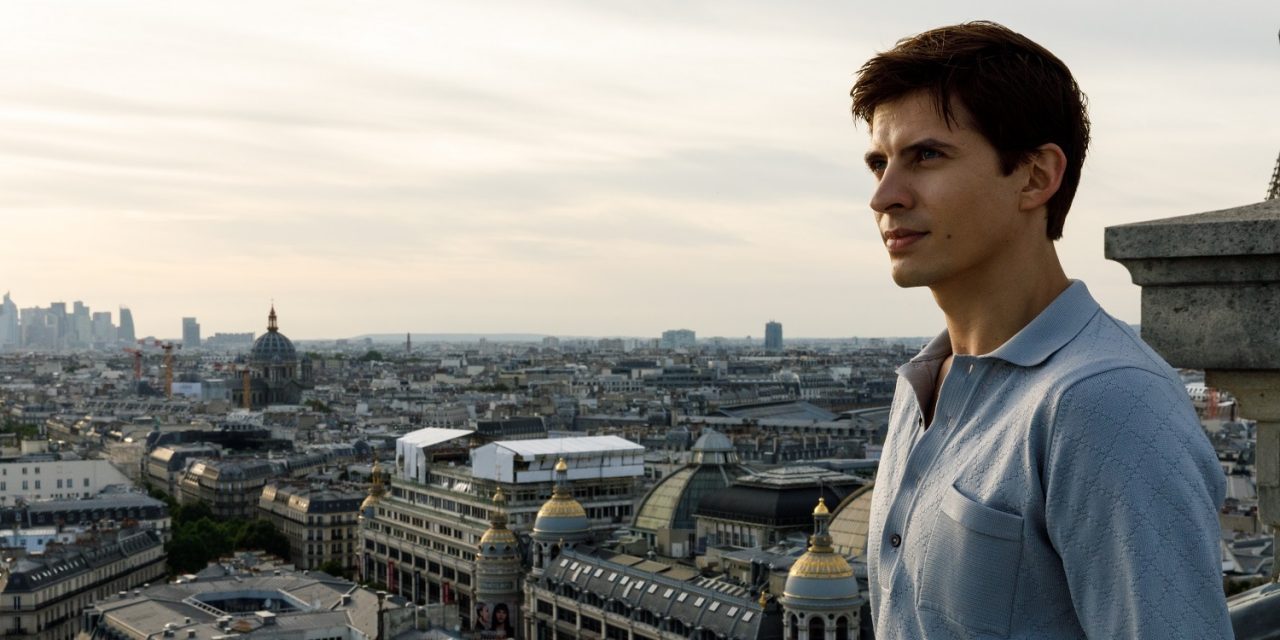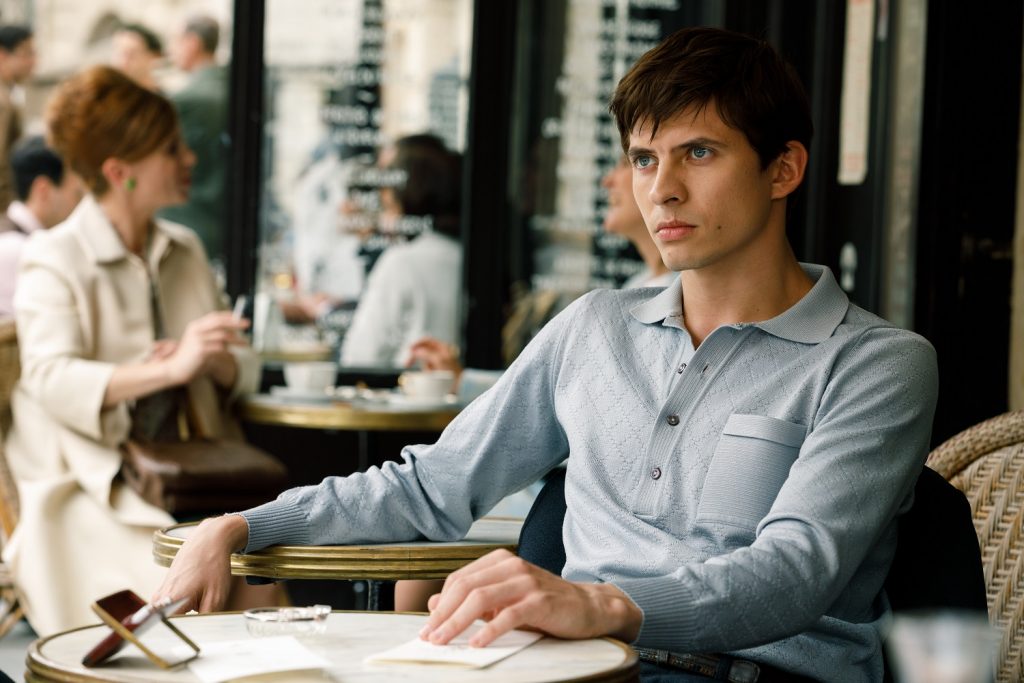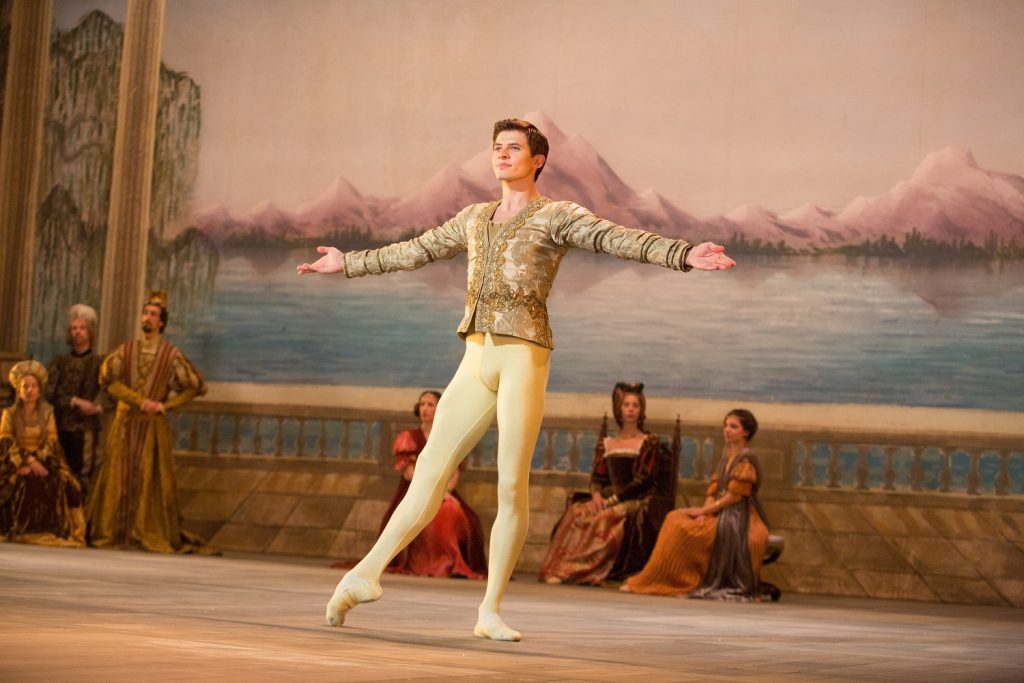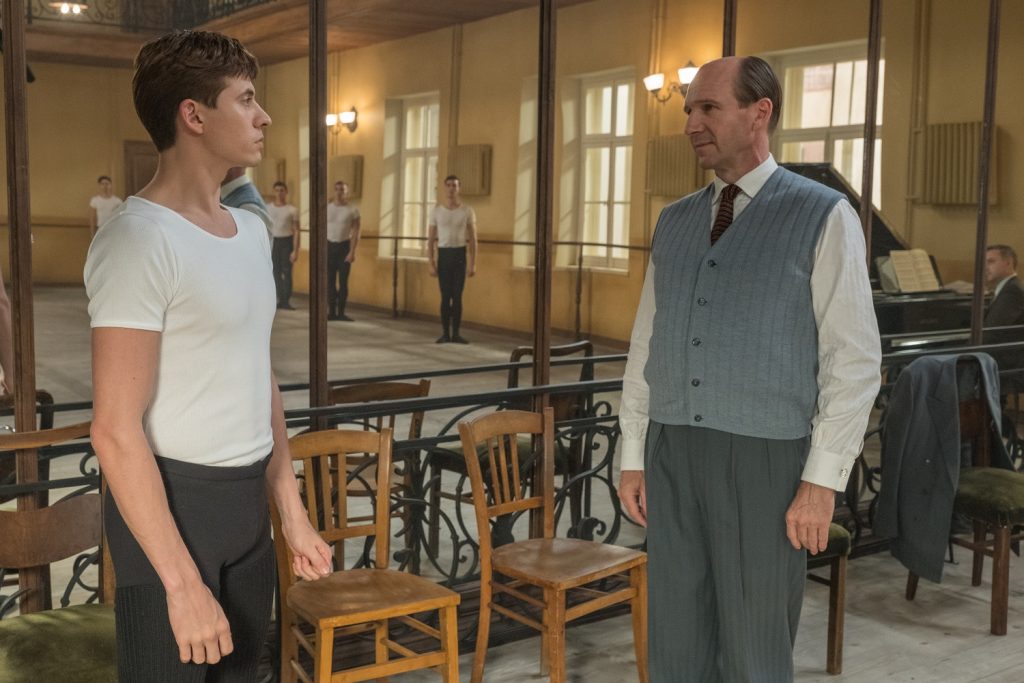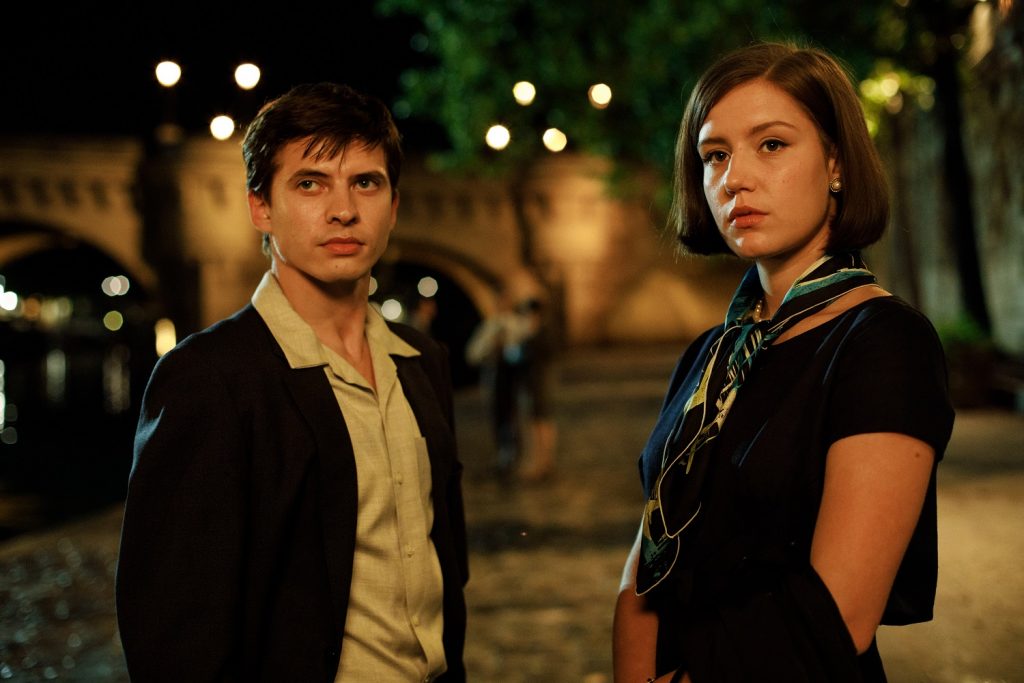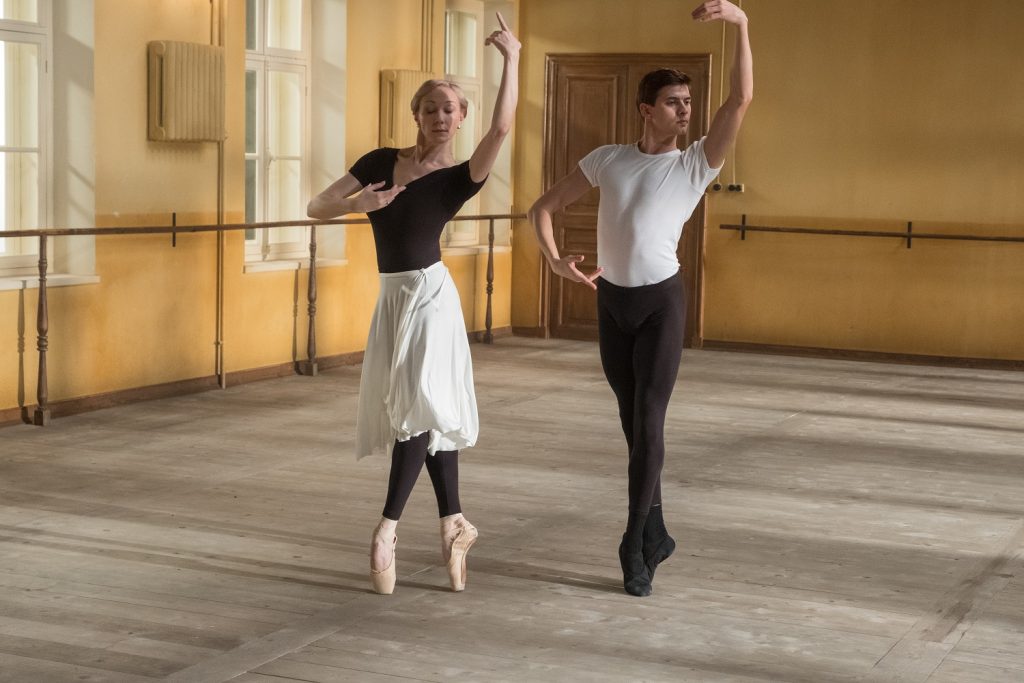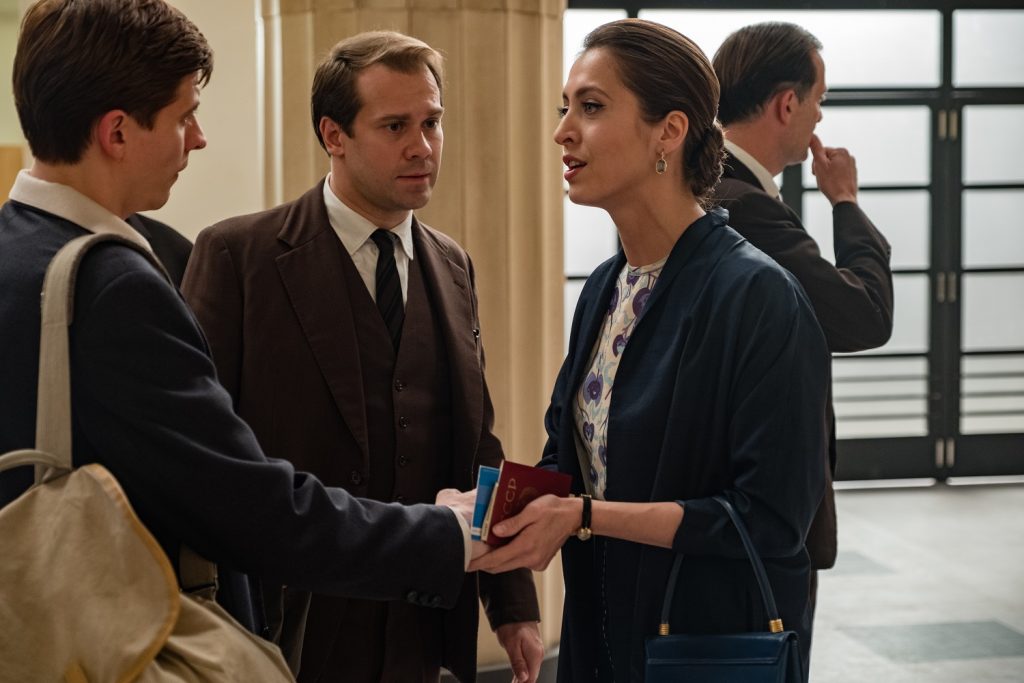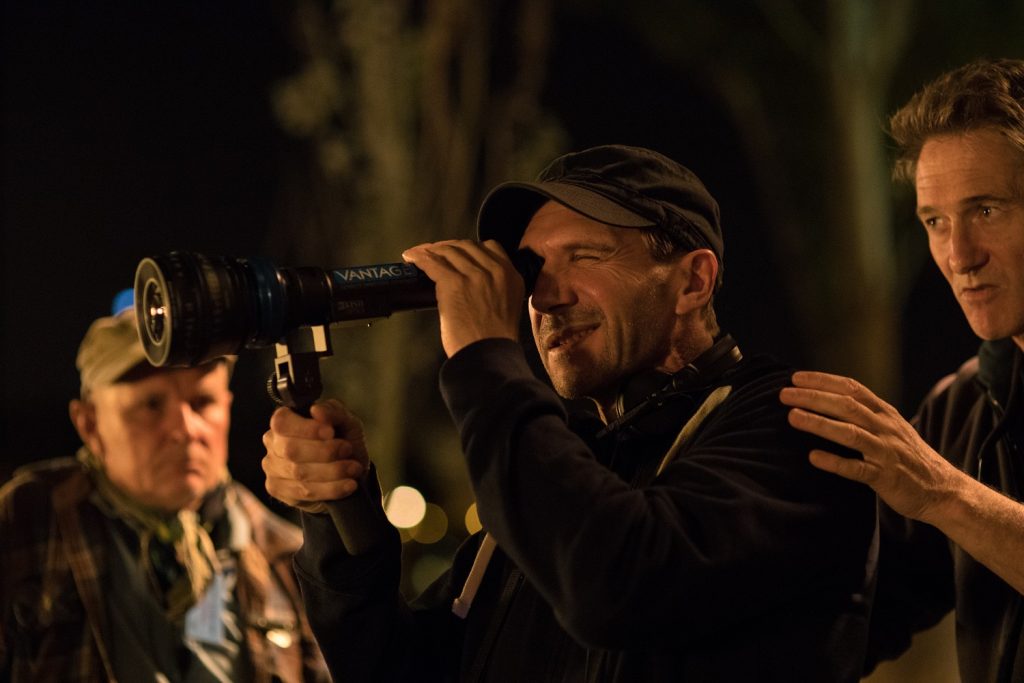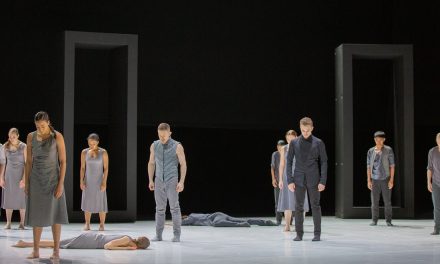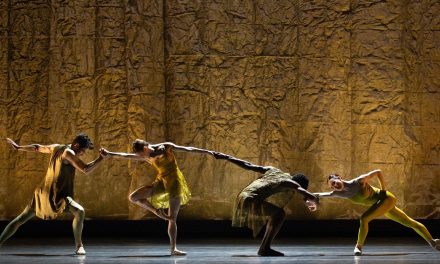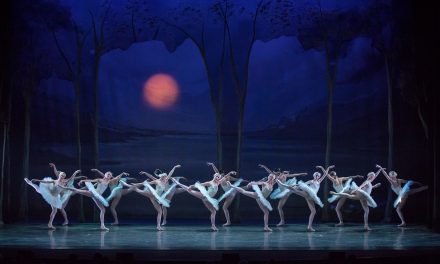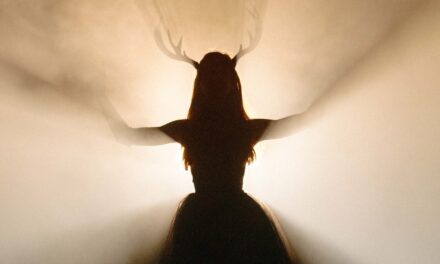Rudolf Nureyev, ballet dancer extraordinaire, with his Tarter fury and charisma, his passion for freedom and art, and his complex sexuality defied all walls and cold war mandates. From his meager beginnings, he exploded onto the world stage from St. Petersburg to Paris in 1961. From his early years, the 200-year history of Russian Dance was alive within him. He proceeded to change the Western world of ballet with his passion and arrogance, his insistence and defiance, so rooted in him since his birth on a train in 1938. The attempt to quell that spirit in a traditional and oppressive Soviet Union was sheer futility, and thus the premise of the film The White Crow, a metaphor for enchantment and unique power.
The film, distributed by Sony Pictures Classics, was produced by Gabrielle Tana (a former ballet dancer), with a host of additional Producers and Executive producers including Liam Neeson, in tandem with the superb actor/director Ralph Fiennes, who shepherded this story to fruition. Fiennes, fascinated by Russian history, discovered Nureyev more fully after reading Julie Kavanaugh’s book, Rudolf Nureyev: The Life some 20 years ago. It haunted Fiennes until the film became a project, then a complete work of art. The character’s relationships delicately woven by David Hare’s screenplay (The Reader, the Hours, Wetherby) at points stunning the audience with brilliance, alternately revealing the ruthless pursuits of the character.
In the film there were many exceptional performances. Rudolf Nureyev played by Oleg Ivenko was quite acceptable as the willful Rudolf Nureyev. To be sure, Ivenko is a dancer, coached by leading Danish ballet dancer and choreographer Oleg Ivenko for historical correctness and ability to sustain the energy in the dance sequences. Sergei Polunin’s portrayal as Nureyev’s friend, Yuri Soloview however, if only for minutes on screen, had the animal energy and star power so needed that Ivenko could not quite match. However, the very young Nureyev, (un-named credit) with his wide eyed sensitivity, and doted by his loving, soulful and determined mother Farida Nureyev (Ravshana Kurkova), created a yearning in both characters which throughout Nureyev’s life never dissipated.
The stark background of cold Russian winters, juxtaposed with the romanticism and grand color of the Louvre’s Géricault’s, ‘The Raft of the Medusa’; the exposure of the stark Vaganova studio and portraitures of the internal fire of dance so masterfully created by the extraordinary and brilliant work of Director of Photography, Mike Eley; Production Designer, Anne Seibel; and Costume Designer, Madeline Fontaine. The music composed by Ilan Eshkeri, inspired by Tchaikovsky, wrote the beautiful heartrending pieces which clearly transported the audience to a different place and time. These talented craftswo/men seamlessly worked together to create the near Film Noire Soviet experience clashing with impressionistic color flourishes of Nureyev’s internal discovery of his own personal genius.
The powerful overview of the battle between the known and the dream was sewn together by the important characters in Nureyev’s conflicted life. Fiennes’ Alexander Pushkin was sensitive, agonizing and brilliant. Speaking Russian fully through the film, Fiennes found the depth and vulnerability of this renowned Master of Russian Ballet. His counterpart, the classically trained Chulpan Khamatova was exquisite as Xenia Pushkin, Alexander’s complicated and desirous wife.
Clara Saint, twenty one year old devoted ballet fan, who had been recently bereaved (her boyfriend son of French Culture Minister André Malraux, killed in a car accident) was instrumental in Nureyev’s life changing experiences. The lovely and intense Adéle Exarchopoulos played this important role with depth, devotion and honesty.
Teja Kremke, Nureyev pragmatic German male friend and convenient companion played by Louis Hofman was amply honest and dangerous. Pierre Lacotte, Paris Opera ballet dancer (Raphaël Peronnaz) and Nureyev’s eventual lifelong friend, Claire Motte (Calypso Valois), along with Gregory Alexinsky, a White Russian (Olivier Rabourdin), the son of an imprisoned father who criticized Lenin (Solway), all helped Nureyev in the Le Bourget airport in Paris. Their roles were laudably well done in support of the story. Strishevsky played by Aleksey Morozov, the conflicted Russian, who finally had to let the “White Crow” free to fly.
This important film about another time, but with the same need of freedom for yet another confined and oppressed population, acts as a stark reminder and seems to resonate even more powerfully today. Nureyev’s legacy not only lives on for those who remember him in books and letters, but in social media and now in stunning film that honors Nureyev’s spirit and what he gave up to be the brilliant ambassador of Dance. The White Crow is important to see not only for dancers, but for all who love art.
THE WHITE CROW opens on Friday, April 26, 2019 at The Landmark in West Los Angeles, 10850 W Pico Blvd, Los Angeles, CA 90064 and ArcLight Hollywood, 6360 Sunset Blvd, Los Angeles, CA 90028.
For information on Sony Pictures Classics, click here.
Featured image: Oleg Ivenko as Rudolf Nureyev in The White Crow – Photo: Courtesy of Sony Pictures Classics

